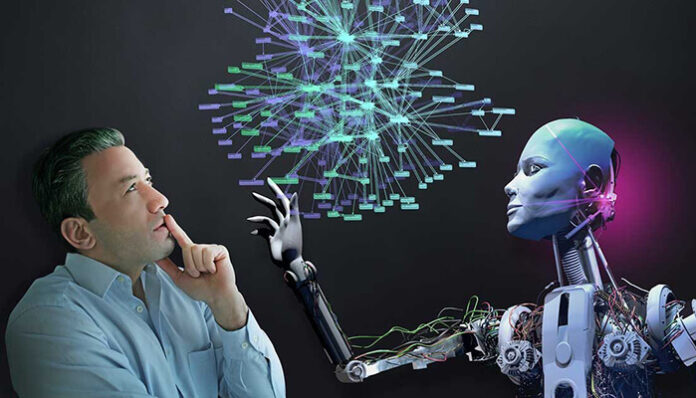Artificial intelligence has already made a significant impact on many aspects of our lives, from voice assistants and search engines to self-driving cars and personalized recommendations. But one area where AI has great potential is in enhancing human creativity and expression. By providing new tools, insights, and possibilities, AI can help us explore new forms of artistic expression, break down creative barriers, and create new works that would have been impossible without its help.
One way that AI can enhance creativity is by providing new tools for artists and creators to work with. For example, AI algorithms can generate music or visual art based on a set of parameters or data input by the artist. This can help artists experiment with new sounds or styles that they may not have considered otherwise, or generate new ideas and inspiration for their work. AI tools can also help with tasks like color selection, composition, and editing, allowing artists to focus more on the creative process and less on technical details.
Another way that AI can enhance creativity is by providing new insights and perspectives on creative works. For example, AI algorithms can analyze patterns in music or visual art, identify common themes or motifs, or even detect emotional or psychological states expressed in the work. This can help artists better understand their own work, identify areas for improvement, or even spark new ideas for future projects.
In addition to providing new tools and insights, AI can also help break down creative barriers by democratizing access to artistic tools and resources. For example, AI-powered software and platforms can provide access to high-quality art materials, tutorials, and feedback, even for those without formal training or access to expensive equipment. This can help level the playing field and allow more people to explore their creative potential, regardless of their background or resources.
Finally, AI can help create new works of art and expression that would have been impossible without its help. For example, AI algorithms can generate music or visual art that pushes the boundaries of what is currently possible, or even create new forms of art altogether. This can lead to new forms of expression and innovation, as artists and creators are able to explore new ideas and possibilities that were previously out of reach.
Of course, there are also concerns about the role of AI in enhancing human creativity and expression. Some worry that AI tools may replace human creativity altogether, or that AI-generated art may lack the emotional depth and nuance of works created by human artists. Others worry about issues like bias in AI algorithms, or the potential for AI-generated art to be used for malicious purposes.
Despite these concerns, the potential of AI in enhancing human creativity and expression is clear. By providing new tools, insights, and possibilities, AI can help us explore new forms of artistic expression, break down creative barriers, and create new works that would have been impossible without its help. As AI technology continues to evolve and mature, it will be exciting to see what new creative possibilities it unlocks for artists and creators around the world.





